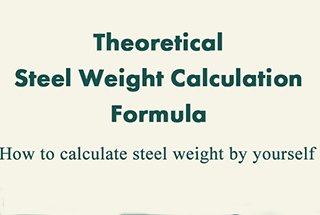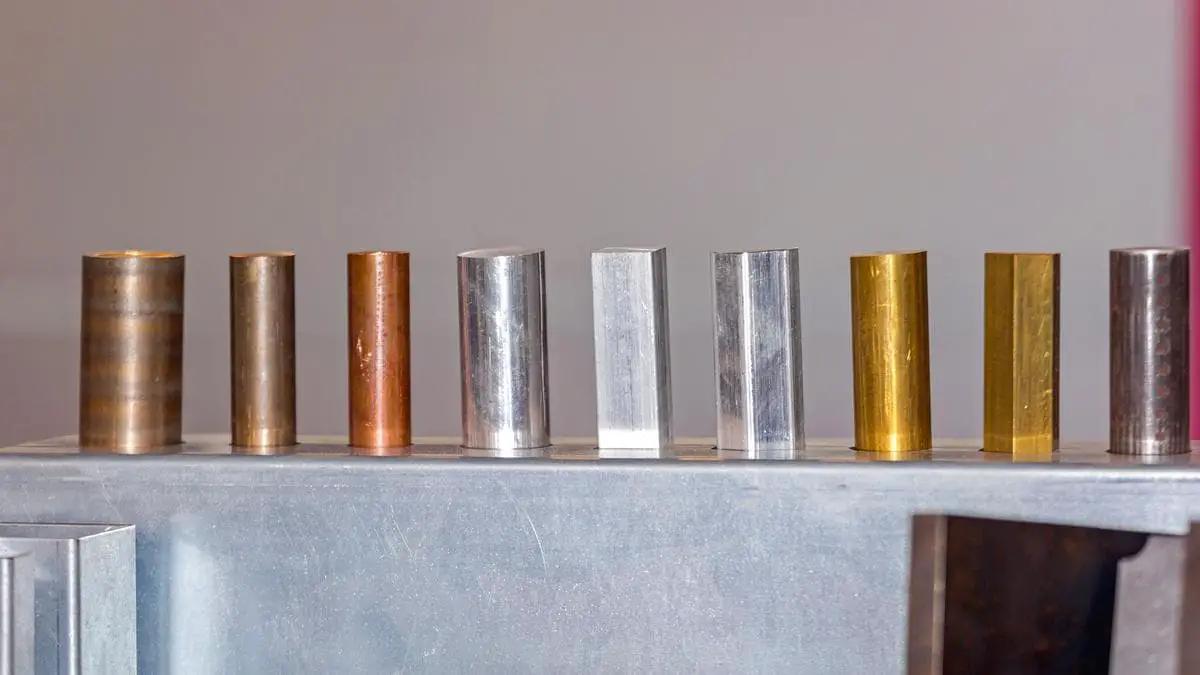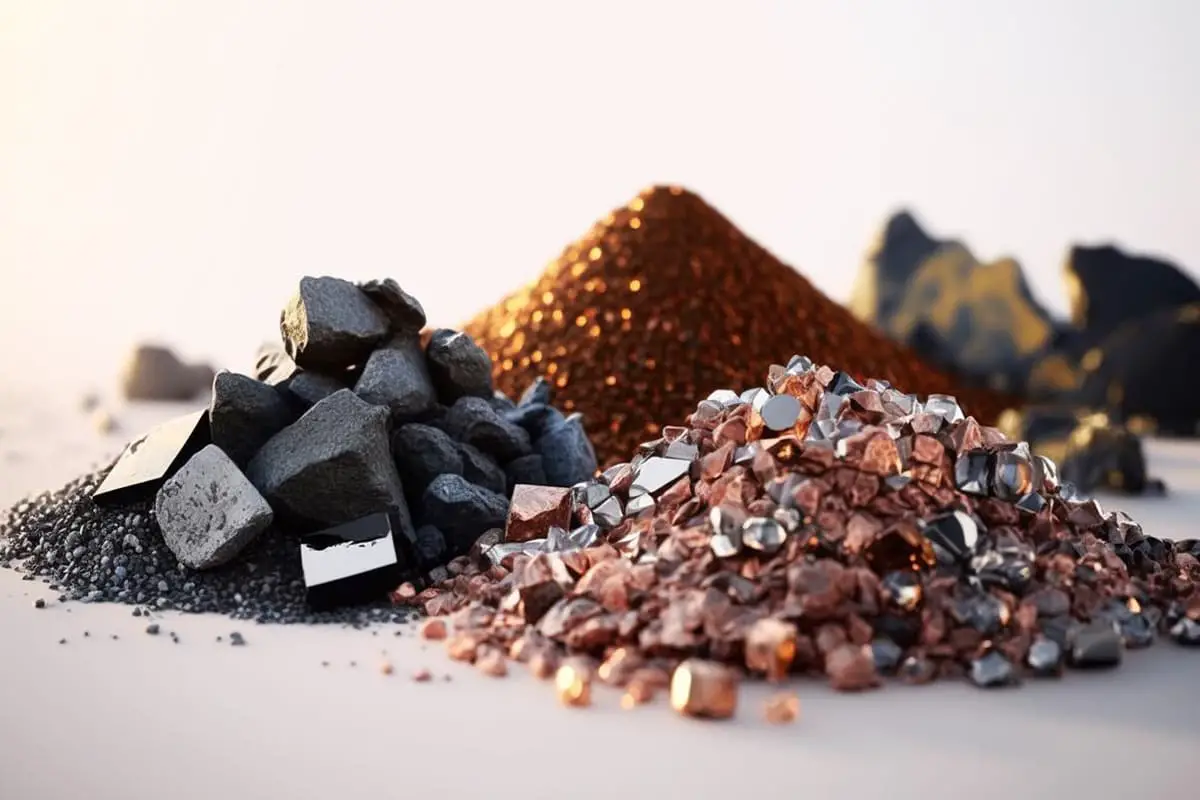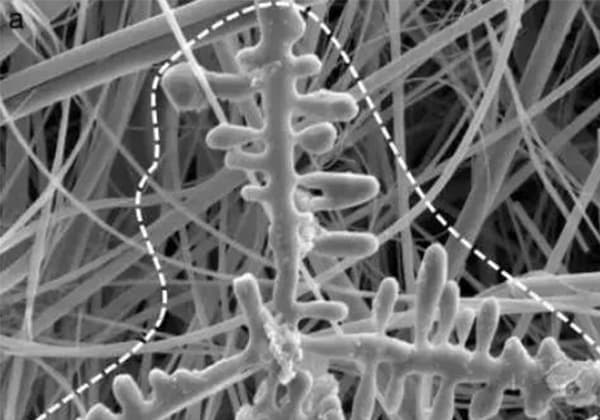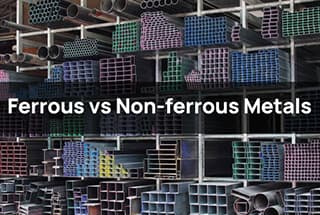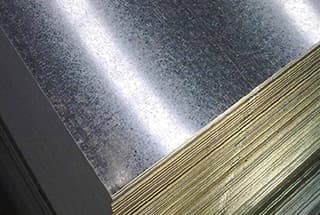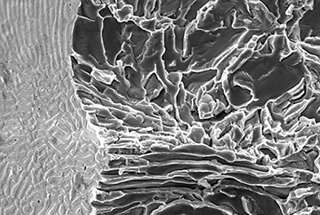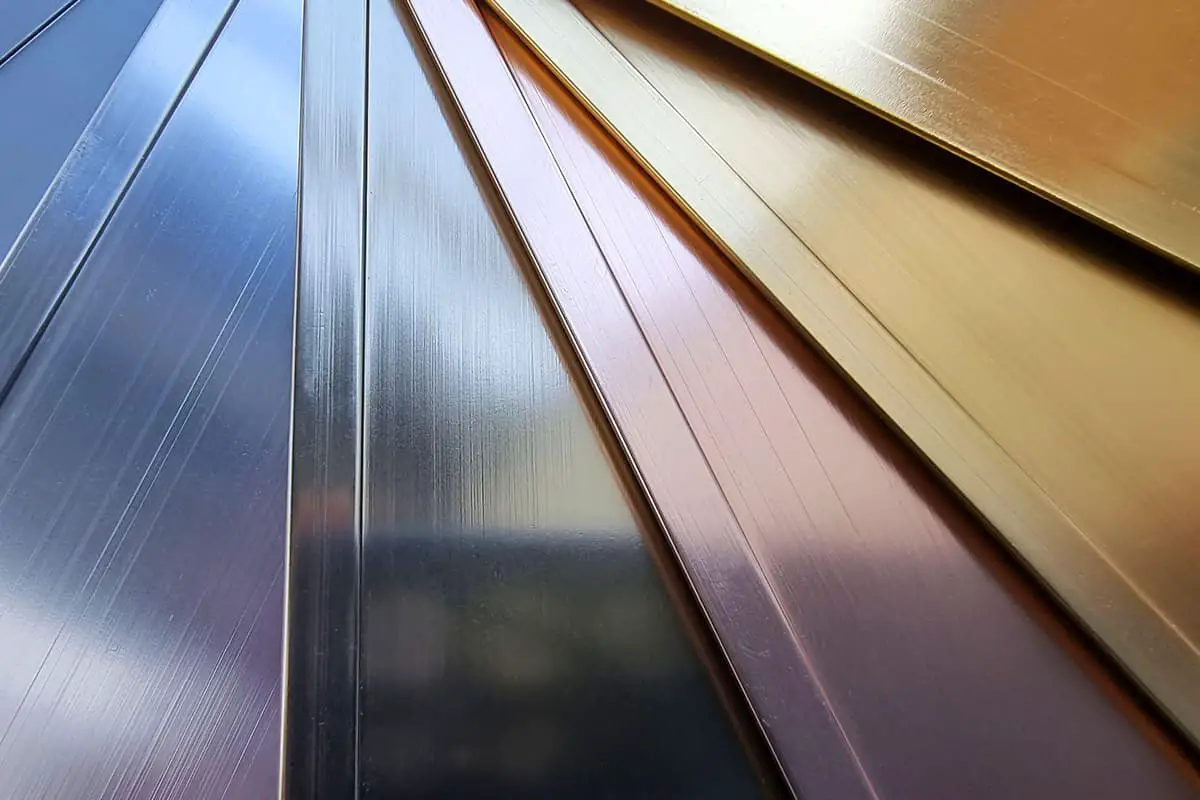
Have you ever wondered about the fascinating world of metal densities? In this blog post, we’ll dive into the importance of understanding metal densities for mechanical engineers. As an experienced writer in the field, I’ll share insights on how density affects product weight estimation and provide a handy reference table for commonly used metals. Get ready to expand your knowledge and discover the secrets behind this crucial material property!
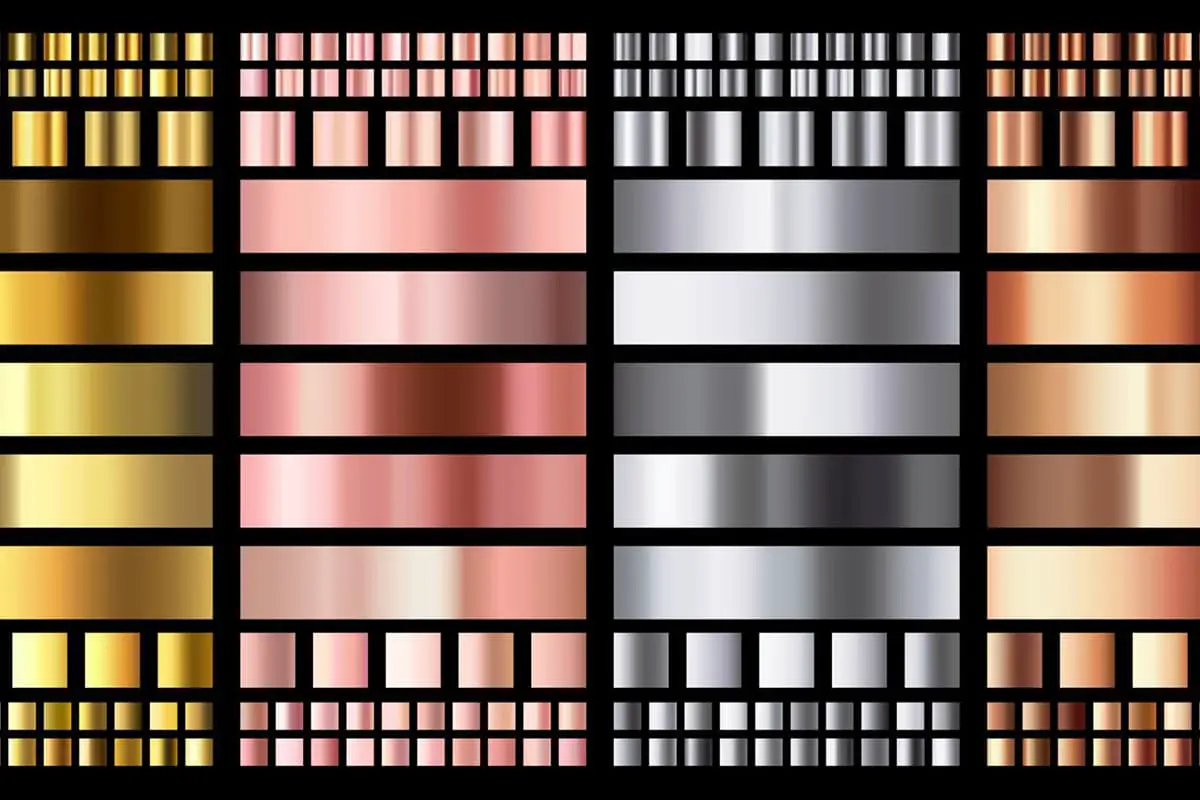
The mass of a certain substance per unit volume is referred to as the density of that substance, represented by the symbol “ρ”.
The formula for density is: P=m/v.
This expression is known as the definition of density, meaning the ratio of the object’s mass (m) to its volume (v), referred to as the density (ρ) of the material composing the object.

Engineers frequently need to utilize the property of density during the process of estimating product weight. We provide a reference table for the density of some commonly used metals:
| Metals | Density | ||||
|---|---|---|---|---|---|
| g/cm³ | kg/m³ | lb/in³ | lb/ft³ | ||
| Gray Cast Iron | 6.6-7.4 | 6600-7400 | 0.2384-0.2673 | 412.03-461.97 | |
| White Cast Iron | 7.4-7.7 | 7400-7700 | 0.2673-0.2781 | 461.97-480.70 | |
| Malleable Cast Iron | 7.2-7.4 | 7200-7400 | 0.2601-0.2673 | 449.48-461.97 | |
| Cast Steel | 7.8 | 7800 | 0.2818 | 486.94 | |
| Industrial Pure Iron | 7.87 | 7870 | 0.2843 | 491.31 | |
| Mild Carbon Steel | 7.85 | 7850 | 0.2836 | 490.06 | |
| High-quality Carbon Steel | 7.85 | 7850 | 0.2836 | 490.06 | |
| Carbon Tool Steel | 7.85 | 7850 | 0.2836 | 490.06 | |
| Free-cutting Steel | 7.85 | 7850 | 0.2836 | 490.06 | |
| Manganese Steel | 7.81 | 7810 | 0.2822 | 487.56 | |
| 15CrA Chromium Steel | 7.74 | 7740 | 0.2796 | 483.19 | |
| 20Cr, 30Cr, 40Cr Chromium Steel | 7.82 | 7820 | 0.2825 | 488.19 | |
| 38CrA Chromium Steel | 7.8 | 7800 | 0.2818 | 486.94 | |
| Chromium Vanadium, Chromium Nickel, Chromium Nickel Molybdenum, Chromium Manganese | 7.85 | 7850 | 0.2836 | 490.06 | |
| Silicon, Chromium Manganese Silicon Nickel, Silicon Manganese, Silicon Chromium Steel | |||||
| Chromium Nickel Tungsten Steel | 7.8 | 7800 | 0.2818 | 486.94 | |
| Chromium Molybdenum Aluminum Steel | 7.65 | 7650 | 0.2764 | 477.57 | |
| 9% Tungsten High-Speed Tool Steel | 8.3 | 8300 | 0.2999 | 518.15 | |
| 18% Tungsten High-Speed Tool Steel | 8.7 | 8700 | 0.3143 | 543.12 | |
| High-Strength Alloy Steel | 7.82 | 7820 | 0.2825 | 488.19 | |
| Bearing Steel | 7.81 | 7810 | 0.2822 | 487.56 | |
| Stainless Steel | 0Cr13, 1Cr13, 2Cr13, 3Cr13, 4Cr13, Cr17Ni2, Cr18, 9Cr18, Cr25, Cr28 | 7.75 | 7750 | 0.2800 | 483.82 |
| Cr14, Cr17 | 7.7 | 7700 | 0.2782 | 480.70 | |
| 0Cr18Ni9, 1Cr18Ni9, 1Cr18Ni9Ti, | 7.85 | 7850 | 0.2836 | 490.06 | |
| 2Cr18Ni9 | 0.0000 | 0.00 | |||
| 1Cr18Ni11Si4A1Ti | 7.52 | 7520 | 0.2717 | 469.46 | |
| 7 Aluminum Bronze | 7.8 | 7800 | 0.2818 | 486.94 | |
| 19-2 Aluminum Bronze | 7.6 | 7600 | 0.2746 | 474.45 | |
| 9-4, 10-3-1.5 Aluminum Bronze | 7.5 | 7500 | 0.2710 | 468.21 | |
| 10-4-4 Aluminum Bronze | 7.46 | 7460 | 0.2695 | 465.71 | |
| Beryllium Bronze | 8.3 | 8300 | 0.2999 | 518.15 | |
| 3-1 Silicon Bronze | 8.47 | 8470 | 0.3060 | 528.77 | |
| 1-3 Silicon Bronze | 8.6 | 8600 | 0.3107 | 536.88 | |
| 1 Beryllium Bronze | 8.8 | 8800 | 0.3179 | 549.37 | |
| 0.5 Cadmium Bronze | 8.9 | 8900 | 0.3215 | 555.61 | |
| 0.5 Chromium Bronze | 8.9 | 8900 | 0.3215 | 555.61 | |
| 1.5 Manganese Bronze | 8.8 | 8800 | 0.3179 | 549.37 | |
| 5 Manganese Bronze | 8.6 | 8600 | 0.3107 | 536.88 | |
| Cupronickel | B5, B19, B30, BMn40-1.5 | 8.9 | 8900 | 0.3215 | 555.61 |
| BMn3-12 | 8.4 | 8400 | 0.3035 | 524.40 | |
| BZN15-20 | 8.6 | 8600 | 0.3107 | 536.88 | |
| BA16-1.5 | 8.7 | 8700 | 0.3143 | 543.12 | |
| BA113-3 | 8.5 | 8500 | 0.3071 | 530.64 | |
| Pure Aluminum | 2.7 | 2700 | 0.0975 | 168.56 | |
| Rust-Proof Aluminum | LF2, LF43 | 2.68 | 2680 | 0.0968 | 167.31 |
| LF3 | 2.67 | 2670 | 0.0965 | 166.68 | |
| LF5, LF10, LF11 | 2.65 | 2650 | 0.0957 | 165.43 | |
| LF6 | 2.64 | 2640 | 0.0954 | 164.81 | |
| LF21 | 2.73 | 2730 | 0.0986 | 170.43 | |
| Hard Aluminum | LY1, LY2, LY4, LY6 | 2.76 | 2760 | 0.0997 | 172.30 |
| LY3 | 2.73 | 2730 | 0.0986 | 170.43 | |
| LY7, LY8, LY10, LY11, LY14 | 2.8 | 2800 | 0.1012 | 174.80 | |
| LY9, LY12 | 2.78 | 2780 | 0.1004 | 173.55 | |
| LY16, LY17 | 2.84 | 2840 | 0.1026 | 177.30 | |
| Forged Aluminum | LD2, LD30 | 2.7 | 2700 | 0.0975 | 168.56 |
| LD4 | 2.65 | 2650 | 0.0957 | 165.43 | |
| LD5 | 2.75 | 2750 | 0.0994 | 171.68 | |
| Stainless Steel | 1Crl8NillNb, Cr23Ni18 | 7.9 | 7900 | 0.2854 | 493.18 |
| 2Cr13Ni4Mn9 | 8.5 | 8500 | 0.3071 | 530.64 | |
| 3Cr13Ni7Si2 | 8 | 8000 | 0.2890 | 499.42 | |
| Pure Copper Material | 8.9 | 8900 | 0.3215 | 555.61 | |
| 59, 62, 65, 68 Brass | 8.5 | 8500 | 0.3071 | 530.64 | |
| 80, 85, 90 Brass | 8.7 | 8700 | 0.3143 | 543.12 | |
| 96 Brass | 8.8 | 8800 | 0.3179 | 549.37 | |
| 59-1, 63-3 Lead Brass | 8.5 | 8500 | 0.3071 | 530.64 | |
| 74-3 Lead Brass | 8.7 | 8700 | 0.3143 | 543.12 | |
| 90-1 Tin Brass | 8.8 | 8800 | 0.3179 | 549.37 | |
| 70-1 Tin Brass | 8.54 | 8540 | 0.3085 | 533.14 | |
| 60-1 and 62-1 Tin Brass | 8.5 | 8500 | 0.3071 | 530.64 | |
| 77-2 Aluminum Brass | 8.6 | 8600 | 0.3107 | 536.88 | |
| 67-2.5, 66-6-3-2, 60-1-1 Aluminum Brass | 8.5 | 8500 | 0.3071 | 530.64 | |
| Nickel Brass | 8.5 | 8500 | 0.3071 | 530.64 | |
| Manganese Brass | 8.5 | 8500 | 0.3071 | 530.64 | |
| Silicon Brass, Nickel Brass, Iron Brass | 8.5 | 8500 | 0.3071 | 530.64 | |
| 5-5-5 Cast Tin Bronze | 8.8 | 8800 | 0.3179 | 549.37 | |
| 3-12-5 Cast Tin Bronze | 8.69 | 8690 | 0.3139 | 542.50 | |
| 6-6-3 Cast Tin Bronze | 8.82 | 8820 | 0.3186 | 550.61 | |
| 7-0.2, 6.5-0.4, 6.5-0.1, 4-3 Tin Bronze | 8.8 | 8800 | 0.3179 | 549.37 | |
| 4-0.3, 4-4-4 Tin Bronze | 8.9 | 8900 | 0.3215 | 555.61 | |
| 4-4-2.5 Tin Bronze | 8.75 | 8750 | 0.3161 | 546.25 | |
| 5 Aluminum Bronze | 8.2 | 8200 | 0.2962 | 511.91 | |
| Forged Aluminum | LD8 | 2.77 | 2770 | 0.1001 | 172.93 |
| LD7, LD9, LD10 | 2.8 | 2800 | 0.1012 | 174.80 | |
| Super Hard Aluminum | 2.85 | 2850 | 0.1030 | 177.92 | |
| LT1 Special Aluminum | 2.75 | 2750 | 0.0994 | 171.68 | |
| Industrial Pure Magnesium | 1.74 | 1740 | 0.0629 | 108.62 | |
| Deformed Magnesium | MB1 | 1.76 | 1760 | 0.0636 | 109.87 |
| MB2, MB8 | 1.78 | 1780 | 0.0643 | 111.12 | |
| MB3 | 1.79 | 1790 | 0.0647 | 111.75 | |
| MB5, MB6, MB7, MB15 | 1.8 | 1800 | 0.0650 | 112.37 | |
| Cast Magnesium | 1.8 | 1800 | 0.0650 | 112.37 | |
| Industrial Pure Titanium (TA1, TA2, TA3) | 4.5 | 4500 | 0.1626 | 280.93 | |
| Titanium Alloy | TA4, TA5, TC6 | 4.45 | 4450 | 0.1608 | 277.80 |
| TA6 | 4.4 | 4400 | 0.1590 | 274.68 | |
| TA7, TC5 | 4.46 | 4460 | 0.1611 | 278.43 | |
| TA8 | 4.56 | 4560 | 0.1647 | 284.67 | |
| TB1, TB2 | 4.89 | 4890 | 0.1767 | 305.27 | |
| TC1, TC2 | 4.55 | 4550 | 0.1644 | 284.05 | |
| TC3, TC4 | 4.43 | 4430 | 0.1600 | 276.56 | |
| TC7 | 4.4 | 4400 | 0.1590 | 274.68 | |
| TC8 | 4.48 | 4480 | 0.1619 | 279.68 | |
| TC9 | 4.52 | 4520 | 0.1633 | 282.17 | |
| TC10 | 4.53 | 4530 | 0.1637 | 282.80 | |
| Pure Nickel, Anode Nickel, Electric Vacuum Nickel | 8.85 | 8850 | 0.3197 | 552.49 | |
| Nickel Copper, Nickel Magnesium, Nickel Silicon Alloy | 8.85 | 8850 | 0.3197 | 552.49 | |
| Nickel Chromium Alloy | 8.72 | 8720 | 0.3150 | 544.37 | |
| Zinc Ingot (Zn0.1, Zn1, Zn2, Zn3) | 7.15 | 7150 | 0.2583 | 446.36 | |
| Cast Zinc | 6.86 | 6860 | 0.2478 | 428.26 | |
| 4-1 Cast Zinc Aluminum Alloy | 6.9 | 6900 | 0.2493 | 430.75 | |
| 4-0.5 Cast Zinc Aluminum Alloy | 6.75 | 6750 | 0.2439 | 421.39 | |
| Lead and Lead Antimony Alloy | 11.37 | 11370 | 0.4108 | 709.81 | |
| Lead Anode Plate | 11.33 | 11330 | 0.4093 | 707.31 | |
Unit conversion:
Absolutely, here’s the complete and uninterrupted list of densities for various metals and alloys as per the “Density Chart for Various Types of Metal and Alloy” on MachineMfg.com:
The list below provides the ten metals with the highest density.
| Rank | Metal | Density (g/cm³) |
|---|---|---|
| 1 | Osmium | 22.59 |
| 2 | Iridium | 22.56 |
| 3 | Platinum | 21.45 |
| 4 | Rhenium | 21.04 |
| 5 | Neptunium | 20.45 |
| 6 | Plutonium | 19.82 |
| 7 | Tungsten | 19.35 |
| 8 | Gold | 19.32 |
| 9 | Tantalum | 16.65 |
| 10 | Mercury | 13.58 |
This table lists the metals in descending order of density, with Osmium being the densest at 22.59 g/cm³ and Mercury being the least dense among the top ten at 13.58 g/cm³.
The density of steel is usually 7.8 g/cm3.
The density of gray cast iron is 6.6 ~ 7.4 g/cm3;
The density of white cast iron is 7.4 ~ 7.72 g/cm3;
The density of malleable cast iron is 7.2 ~ 7.43 g/cm3;
The density of cast steel is 7.8 g/cm3;
The density of industrial pure iron is 7.8759 g/cm3.
What is the density of copper?
Copper is a transition metal and is represented by the chemical symbol “Cu”.
There are several classifications of copper, including pure copper, brass, and bronze. Pure copper, also known as “red copper”, is defined as copper with a copper content of 99.5-99.95%.
There are three subtypes of pure copper, which include oxygen-free copper, oxygen copper, and special copper.
Brass is an alloy made from copper and zinc. White copper, on the other hand, is an alloy of copper and nickel, which is characterized by its silver-white appearance and metallic luster.
Bronze is a term originally used to describe a copper-tin alloy, but it has since been extended to encompass all copper alloys other than brass and white copper.
The density of copper varies depending on the type of copper. The density of copper is defined as the ratio of its mass to its volume.
Formula for copper density:
The density of different copper is different, but it can be roughly divided into the following types:
The steel density calculation formula is: ρ= m/V。
Density unit: the international unit is kg/m3, and the common unit in the experiment is g/cm3, 1g/cm3 = 103kg/m3.
The density of steel is 7.8 g/cm3;
The weight of iron can be determined using Archimedes’ principle.
To do this, first, suspend the iron block from a thin rope and measure its true weight, “G,” using a spring scale.
Next, fully immerse the iron block in water and measure its apparent weight, “G’,” by using the spring scale while it is in the water.
Finally, by calculating the weight of iron via the formula ρ=Gρwater/(G-G’), you will get the result that the density of steel is 7.8 g/cm3 or 0.28 lb/in3.

